By: Kavodi Kulunumini
In recent events, the passing of Ebrahim Raisi, the former leader of Iran, has sparked contrasting emotions within the country. While some mourn his death, others openly celebrate it. Understanding the reasons behind this divide sheds light not only on Raisi’s reign but also on the expectations of future leaders in Iran.
Ebrahim Raisolsadati (14 December 1960 – 19 May 2024), commonly known as Ebrahim Raisi was an Iranian politician who served as the eighth president of Iran from 2021 until his death in 2024.Raisi served in several positions in Iran’s Judicial system, including as Prosecutor of Karaj, Hamadan and Deputy Prosecutor and Prosecutor of Tehran. He also held the positions of Deputy Chief Justice (2004–2014), Attorney General (2014–2016), and Chief Justice (2019–2021).
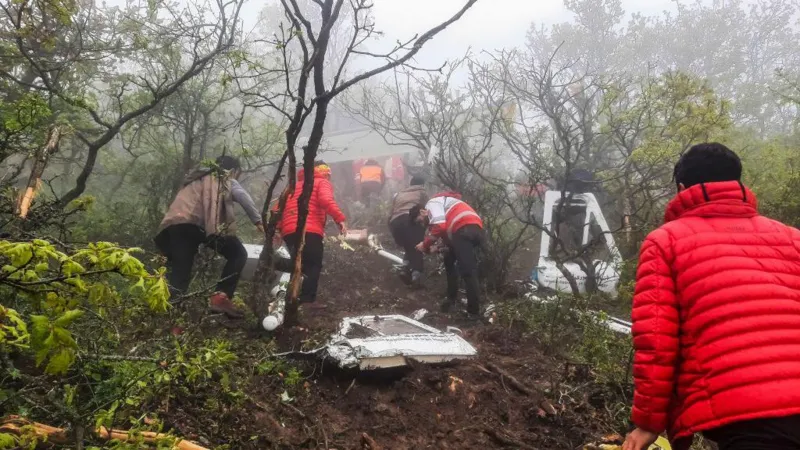
Raisi had run for presidency back in 2017 as the candidate of the conservative ‘Popular Front of Islamic Revolution Forces’, losing to his predecessor Hassan Rouhani although later Raisi successfully ran for presidency a second time in 2021 with 63% of the votes. Yet there are many controversies according to many observers, believing the 2021 election to be rigged in favor of Raisi, who was considered an ally of and a frontrunner to succeed Supreme Leader of Iran Ali Khamenei at the time.
During Raisi’s term, Iran had increased uranium enrichment, hindered international inspections, joined SCO and BRICS, as well as supported Russia in its Ukraine Invasion. Iran was also responsible in launching a missile and drone attack on Israel during the conflict with Gaza and had since continued arming proxy groups such as Houthi Movement or Hezbollah.
As a governor Raisi was widely considered to be a hardliner in Iranian politics. He had strongly supported sex segregation which refers to the act of physical; legal and/or cultural separation of people according to their biological sex.
He had once mentioned back in 2014 about planned segregation in Tehran Municipality
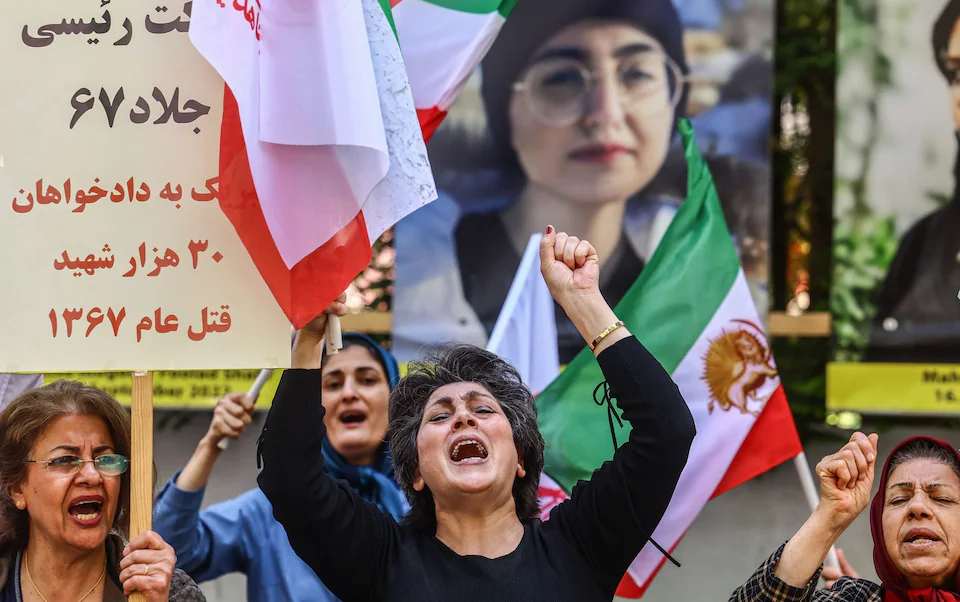
“I think this is a good move because the majority of women do a better job in a totally relaxed atmosphere and fit are required”
He was also an avid supporter of Islamization of universities, revision of the Internet and censorship of Western culture which contrasts the modernism the environment had demanded in recent years. Raisi had claimed that economic sanctions were an opportunity
His visons on appropriate punishment was also considered morally dubious as he had stated the amputation of thieves’ hands, which is based on a very strict interpretation of Sharia is one of “our honours” and that such punishments will not be limited to now and will be continued in the future. He stated that he should be honoured and esteemed for his role in the 1988 executions as well.
Raisi was one of 9 Iranian officials listed in November 2019 who were subjected to sanctions by the United States Department of State due to alleged human rights abuses. He was sanctioned by the U.S. Office of Foreign Assets Control in accordance with Executive Order 13876. He was accused of crimes against humanity by international human rights organizations and United Nations special rapporteurs. There has also been a formal request to arrest Raisi for crimes against humanity, if he attended the 2021 United Nations Climate Change Conference in Scotland.
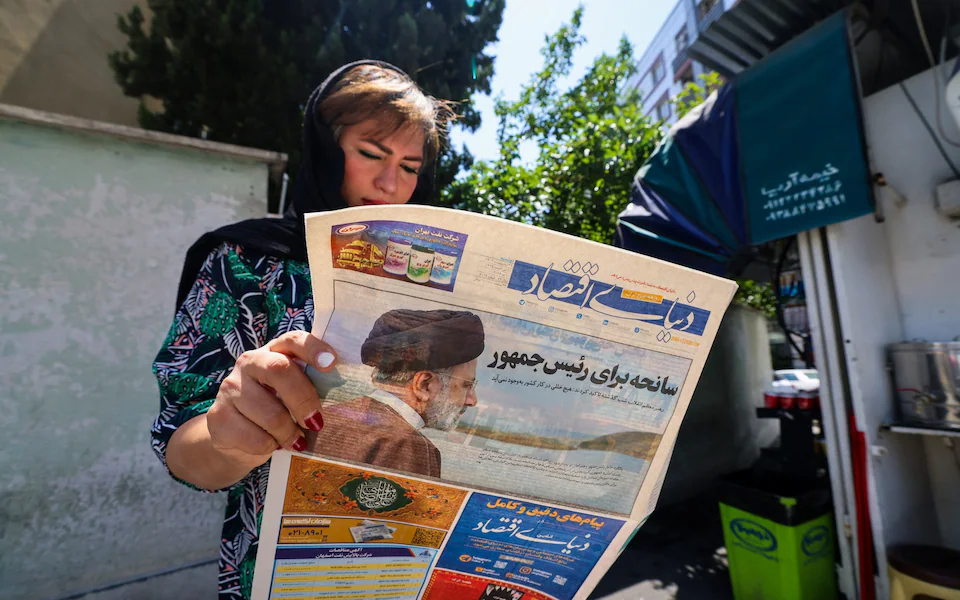
Speaking of Raisi’s tenure his policies hold a fundamental value. He believed in the activation of a resistance economy and supported development of the agricultural sector over commercial retail, which “will eventually benefit foreign brands.
In 2017 Raisi had promised to triple the monthly state benefits in order to tackle corruption and create more professional opportunities. He believed sanctions to be that of advantageous for economic empowerment. Raisi said in regards to the issue of lifting sanctions:
“Every government that takes office (to be elected), should lift the oppressive sanctions, and it must be pursued seriously; and the neutralization of sanctions should be on the agenda and we should not condition the economy; neither the corona nor the flood nor the sanctions should have an impact.”
His take on women empowerment is largely positive…at least in state-led media where he had proclaimed that no one has the right to violate the freedom of rights of girls and women and had realized how fundamentally incomplete the culture and economy would be without the role of a woman. Yet in spite of these comments Raisi had also signed orders creating stricter hijab constraints for women in Iran which had ended in catastrophes. One of the best known example for such an occurrence would be when Mahsa Amini, a 22-year-old Iranian woman, died under suspicious circumstances on September 16, 2022, in Tehran, Iran.
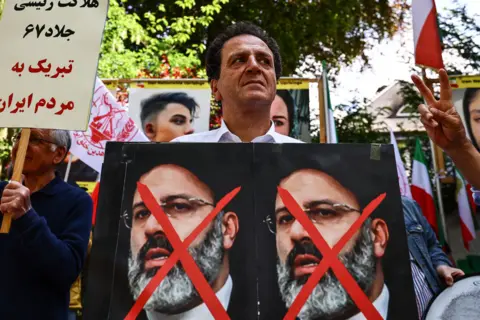
She had been arrested by the Guidance Patrol for allegedly not wearing the hijab according to government standards. Iranian authorities claimed she had a heart attack at a police station and fell into a coma before dying in the hospital. However, eyewitnesses, including fellow detainees, alleged she was severely beaten by the police, leading to her death. This sparked widespread protests across Iran, with some demonstrators removing their hijabs or cutting their hair in protest. The protests were described as the largest since at least 2009. Amini’s death fueled the global Woman, Life, Freedom movement, demanding an end to compulsory hijab laws and other forms of discrimination against women in Iran.
Raisi had often made discriminatory remarks about homosexuality, calling same-sex relations “savagery”. The Center for Human Rights in Iran asserts that this type of rhetoric exacerbates prejudice and violence against LGBTQ+ individuals in the country. When visiting Uganda, after the country had recently passed a law instituting the death penalty for homosexuality, Raisi stated: “I believe that this issue, and these strong attacks by the West against the establishment of families and against the culture of the nations, is another area of cooperation for Iran and Uganda,” further adding: “The Western countries try to identify homosexuality as an index of civilization, while this is one of the dirtiest things which have been done in human history.”
Considering his foreign policy Raisi had expressed support for stabilizing Afghanistan after the Taliban’s takeover and called for inclusive governance. Raisi also made threats against Israel, praised Hamas attacks, and criticized Israel’s actions in Gaza. He sought to strengthen ties with Syria, criticized the Saudi-led blockade of Yemen, and pledged an alliance with Russia amid the Ukraine conflict. Raisi’s diplomatic efforts included visits to China and the restoration of ties with Saudi Arabia. Additionally when Raisi had met with accusations regarding his role in past human rights abuses, leading to the cancellation of a trip to Geneva.
That is not to take his credibility away as a governor because Raisi had made significant and progressive changes in the system such as taking active measures to support intellectualists and artists and having a comparatively higher female education rate – Traditional pious Iranians—who had kept their daughters out of school during the Shah’s era—had felt comfortable allowing their daughters to be schooled in an Islamic educational system. Enrollment of women in universities jumped from 3% in to 67%. Yet few good deeds doesn’t disassociate Raisi from the bad he had aided in nor are they mutually exclusive.

Raisi’s death on 19th May 2024 brought a large deal of controversy. Amongst the thousands who wept for the demise of their president having a considerable population celebrate it was perhaps the biggest of them all.
In the time of Raisi a series of protests in Iran sparked by the death of Amini and allegations of police brutality and misconduct were reported. Protests erupted in Sanandaj, Kurdistan province, with demonstrators defying official warnings and being fired upon when they shouted anti-regime slogans. The protests spread to other provinces, with internet and mobile phone services shut down, and the head of the Guidance Patrol allegedly suspended. Unconfirmed social media videos showed protests in at least 16 provinces, and state media reported three deaths in Kurdistan. In Zahedan, Sistan and Baluchestan province, forty civilians were killed and many wounded following Friday prayers, sparked by reports of a police chief raping a 15-year-old girl. The protests gained significant traction online with a Mahsa Amini hashtag garnering 52 million tweets. There were speculations about a review of the hijab law and the possible disbandment of the Guidance Patrol. The protests transcended previous ones in scale, reaching even Islamic Republic power bases and involving diverse demographics, including schoolgirls. The regime claimed to have arrested tens of thousands of protesters, and by mid-March 2023, protests had dwindled across most of the country, with the government claiming to have pardoned 22,000 arrested citizens.
The situation when Mahsa Amini, a 22-year-old Iranian woman, died was a statement that people would rather go ahead with death to get rid of it than live under pressure. While talking about women’s freedom, the strict laws on the hijab revoked the right of women to live a normal human life. It is abhorrent to consider being a second-class citizen just for being a woman in sex, not considering talent nor ability.
This hasn’t been the sole incident under Raisi’s regime. After such oppressing actions it comes as no surprise why some would be inclined to celebrate the death of the man who had taken their voice as such.
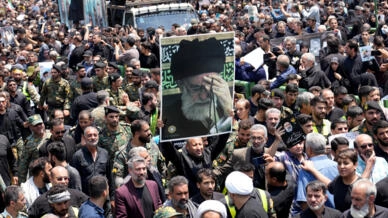
Such examples were seen throughout the country especially through social media flooding with celebratory fireworks. And the celebration had not been mutually exclusive to Iran. Few of the most notable of such incidents were when people were dancing outside the London’s Iranian Embassy at the news of the helicopter crash and daughters of an anti-regime activist named Minoo Majidi who had been shot back in 2022 toasting to the death. An Iranian-American Journalist Masih Alinejad had also seen it fit to share his happiness at the demise. What is important to remember is that all these people who’d dared to celebrate risked arrest and most probably death for acting against the state. Yet families of slain protesters and dissidents express relief and renewed determination to seek justice and freedom in Iran despite facing threats and intimidation from authorities. The relatives of victims sharing their joy over the news had also been a common sight. Exiled Iranians also rejoice, viewing Raisi’s death as a step towards justice. Survivors of anti-regime protests express mixed emotions, wishing for Raisi to face trial for his alleged crimes while feeling hopeful for a future of freedom in Iran.
Perhaps this untimely and perhaps uncouth celebrations demands a deeper observation to governance than what meets the eye. It teaches whoever that occupies the seat next that this is a changing world and the centuries old and unfit policies and the preferred forms of dissent require a second look as much as an insight to the operations carried under the name of the state emphasizing the importance of accountability and transparency in governance. This incident depicts that prioritizing the well-being and prosperity of the Iranian people over personal or political interests is what is ultimately expected out of a state leader or the president of the state. The government should be able to foster an environment of inclusivity and dialogue to address the concerns of diverse segments of society while upholding human rights and freedoms as fundamental pillars of governance. It is also fundamental to implement policies that promote economic growth, stability, and social justice.
In order to avoid a similar plight some suggestive actions that could be taken are building trust and credibility through genuine engagement with the public and actively listening to the grievances and aspirations of citizens and responding with empathy and action without the means of crushing or silencing them further. It could also do well to invest in education, healthcare, and infrastructure to improve the quality of life for the pubic and embrace the diversity and pluralism as strengths rather than sources of division.
The ideas of the young community, who want to move in parallel with the world, were fenced off. The rapper’s death is his own opinion. The right to protest against something of their choice being the death of a person is as animalistic as it could be.
It is not difficult for us to find facts from history at a time when the world is more open to whether the rigidity of a religion based on a religious face is a desire or a form of force. An artist like Hitler would later become one of the worst human killers in history because of this power struggle. Such killers and terrible leaders have worked to subdue the entire population to a limited system designed with the intention of instilling the powerful feelings within themselves and to destroy those who do not. Mussolini and Idi Amin also had not been exceptions.
Like everyone else, it is important for the leader to keep the leader’s cane out of the path of the other (citizen). It is not civilized to be happy for Raisi. But death should not be the solution to stop as the deaths seem to reflect a response to indecency. Since Iran is nearing an election, this situation cannot be missed by any newly appointed leader. More attention should be paid to the freedom of living and the trust that people demand. For the future of any government it is significant to learn from the mistakes and shortcomings of the predecessors to chart a more inclusive and prosperous future for the country.
Therefore in conclusion the celebration of Ebrahim Raisi’s death in Iran reflects a deep-seated dissatisfaction with his leadership and governance style. As the country transitions to a new era, future leaders must heed the lessons from Raisi’s tenure and strive to earn the trust and respect of the Iranian people. By embracing principles of accountability, transparency, and inclusivity, they can pave the way for a brighter future for Iran and its citizens while their citizens remain starry eyed with hope.

